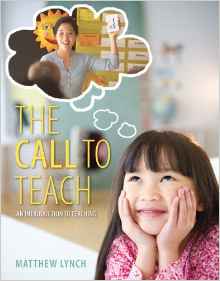Garden-Based Learning: A Return to Simpler Food in K-12 Schools
The idea that nutrition and educational performance are directly related is nothing new. Free school breakfast and lunch programs are often credited with higher levels of student achievement in the schools where they exist. Non-profit children’s hunger programs intended to feed at-risk students on the weekends are sprouting up all across the country. There is a connection between what a child eats and how that child performs academically.
This idea extends beyond simply filling a child’s belly though. An understanding of food and its role in lifelong physical and psychological health is also important because it addresses more than the immediate. Quality of life and longevity are impacted by food lifestyle and healthy eating habits that are formed early in life. In a culture where children grow up with a skewed concept of where food originates, it is up to schools to step in and provide guidance. With very limited resources for academic basics, though, how can schools find the time, money and expertise to root students in smart food knowledge?
One way is to have actual gardens on school property, however small. The Center for Nutrition in Schools at UC Davis found that garden-based learning does more than just improve nutrition knowledge. Students who participate in garden programs on school grounds have higher overall academic achievement and experience elevated self-esteem and social skills. These findings show that getting out of manufactured classroom and setting/digging into the dirt makes quite the positive impact on K-12 students. The benefits of gardening extend beyond the fruit in hand.
Many schools that have embraced student-led gardening programs rely on inspired parents to run them though. The award-winning gardening program at Surfside Elementary on Florida’s Space Coast is the personal project of school mom Erika Maier who admits to spending about 25 hours or more every week on holistic food initiatives. Teachers who can tear themselves away from teaching FCAT requirements for a half hour each week are able to take their kids outside to get dirty planting their own food in the ground. When the plants reach fruition, the kids help harvest and eat them.
The School Garden Project of Lane County, Oregon boasts 30 gardens at K-12 schools in five districts. Over 800 students are taught to “create, sustain and use onsite gardens” every year.” By simply showing the basics of food growing, students have an informed approach to eating without an official lesson in “healthy eating.” For many K-12 students, working in a school garden is the first time they are making a real-life connection between the items they see in the grocery store and their original location.
Organizations like the Edible Schoolyard promote the principle that food is an “academic subject” and that it is the responsibility of schools to develop sustainable farms with whatever resources they have available. Those crops should then be used in school lunches and classroom celebrations. The theory is that students who are empowered to grow their own food will then be more connected to what they eat and have the ability to make smarter choices.
These fringe movements are becoming increasingly main stream. Though not a mandated portion of K-12 curriculum, a cultural return to proactive approaches to good health – like smart eating habits – is evident. The more educational technology improves, the bigger the need for garden-based learning and other back to basics programs. Like so many other facets of happy, healthy living, K-12 students need the knowledge to make informed choices.
But do schools have the resources to be part of the movement, or will they need to rely on volunteers to make it happen?
Read all of our posts about EdTech and Innovation by clicking here.





